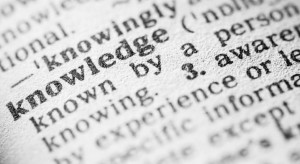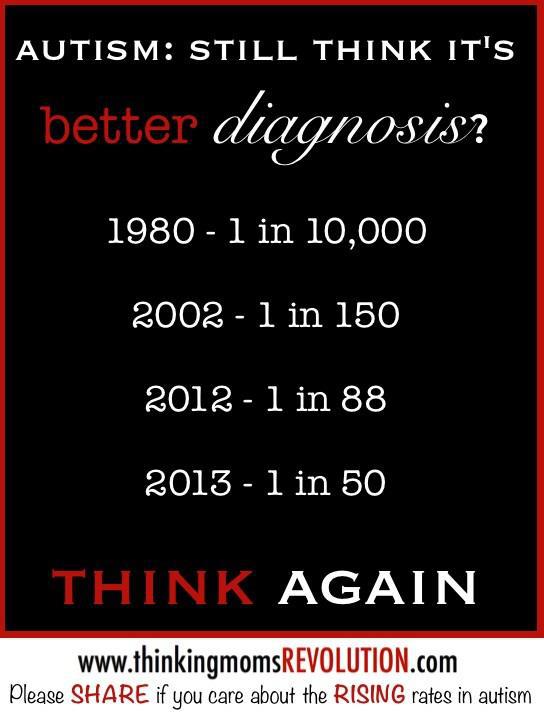 I just finished writing an article for The Mother magazine, a UK-based publication that also has a US outlet. I discovered this magazine when TMR’s book, Autism Beyond the Spectrum, was featured in their Book Review section in the September/October 2013 edition (Issue 60). They asked one of the Thinking Moms to submit an article for a future edition. I jumped at the chance to contribute something. My article will come out sometime in early 2014.
I just finished writing an article for The Mother magazine, a UK-based publication that also has a US outlet. I discovered this magazine when TMR’s book, Autism Beyond the Spectrum, was featured in their Book Review section in the September/October 2013 edition (Issue 60). They asked one of the Thinking Moms to submit an article for a future edition. I jumped at the chance to contribute something. My article will come out sometime in early 2014.
At the end of the article I was submitting, it was suggested that I make a list or add a paragraph of some ideas of what parents of typical kids should (or should not) say to those of us who have a child on the spectrum. When I started to brainstorm what typical parents need to know, say and not say, I realized that one paragraph would not be enough space! So, here is a blog post with some of those ideas and what I consider to be frequently asked questions I, and many others, get when people learn of our child’s autism diagnosis.
I am seeing more news stories about autism, but the individuals they feature are so high functioning and nothing like your son who is very delayed and dependent on you. What exactly is autism, and why are people affected so drastically? Autism Spectrum Disorder is just that—a spectrum. Some people are very affected (like my son), while others will be able to leave home as they approach adulthood, hold down a job, get married and fulfill their dreams.
According to the National Institute for Neurological Disorders and Stroke, Autism Spectrum Disorder (ASD) is: “…a range of complex neurodevelopment disorders, characterized by social impairments, communication difficulties, and restricted, repetitive, and stereotyped patterns of behavior. Autistic disorder, sometimes called autism or classical ASD, is the most severe form of ASD, while other conditions along the spectrum include a milder form known as Asperger syndrome, and childhood disintegrative disorder and pervasive developmental disorder not otherwise specified (usually referred to as PDD-NOS). Although ASD varies significantly in character and severity, it occurs in all ethnic and socioeconomic groups and affects every age group. Experts estimate that 1 out of 88* children age 8 will have an ASD (Centers for Disease Control and Prevention: Morbidity and Mortality Weekly Report, March 30, 2012). Males are four times more likely to have an ASD than females.” *The autism rate was updated in April 2013 to 1 in 50.
Does autism run in your family? In my situation, on both sides of my and my husband’s families, we know of no other person, child or adult, living or deceased, who has had the same debilitating issues that accompanies Ronan’s diagnosis. We do see, though, that some other families have several relatives with an autism diagnosis and may have family members with a different neurologically impairing disorder like Bipolar Disorder or Tourette’s Syndrome. What we may not know, though, is what has triggered each individual’s autism. One relative may have landed on the spectrum post-anesthesia; another because of vaccinations. The type of toxic assault, and when and how it was made, could correlate to how affected their development, abilities and futures are.
When do parents know that something is wrong? For us, we knew something wasn’t right when Ronan lost the words he had started to use. He went completely silent for a stretch of time which confirmed that something was just not right. He now had no words, no babbling and made no sound except crying incessantly or laughing what we call a “yeasty laugh” (due to how messed up his gut was). Later, we started to see other red flags: perseverating (playing with only one toy and getting very upset if he couldn’t play with it), terrible GI problems, sensory issues, wanting a rigid routine. An Early Intervention (EI) evaluation confirmed sensory integration disorder, fine and gross motor delays and an expressive speech disorder. The age of onset and diagnosis differs for each person. Typically, children have been diagnosed with autism between 18-24 months. Some children with Asperger’s, which tends to be a higher functioning form of autism, are diagnosed later in childhood.
This is a nice visual of some of the red flags parents should be aware of, but know that not every person on the spectrum displays the types of behaviors depicted in these pictures. For example, my son never flapped, never lined up toys, but he did lose his words and slowly zoned out into his own world. Knowing what the typical childhood milestones are, like when a baby should be able to point, wave and have meaningful interaction with others, can help a parent track what is normal and what might need to be addressed with a physician.
Who can confirm an autism diagnosis? Several specialists may suspect autism, like your pediatrician or speech therapist, but they cannot make the official diagnosis. Your primary care provider can refer you to one of the following specialists who is able to diagnose autism: a developmental pediatrician, psychologist or neurologist.
My child was just diagnosed with autism. What can I do? Before I knew about the biomedical world I was unaware of the many treatment options for children on the spectrum. We now use as holistic an approach as we can afford and provide to Ronan, including eating organic and non-GMO foods, avoiding preservatives or food dyes and supporting some of his deficiencies with vitamins and supplements.
For new parents just learning that autism can be treated, and, of course, depending on how affected their children are and what type of doctor they are seeing, some children may be prescribed medication to reduce behaviors and anxiety. Some will promote holistic treatments to ease some of the burden on the body. That treatment may include dietary changes, supplements, vitamins and therapy (speech, occupational, behavioral). Essential oils, chiropractic care, acupuncture, cranial sacral massage are other naturopathic measures that have been explored by those wishing to take Western medicine out of the equation.
Taking charge of your child’s health is important, diagnosis or not; so know what it is you want as far as potential treatments. It may be scary and overwhelming, but ask for your provider’s offer help to create an ideal plan that will suit optimal health and support to your child.
Do you really think it was the vaccines? Many parents believe that vaccines contributed to their children’s autism diagnoses or to the onset of medical issues their children suffer. I am one of those parents. Ronan’s progression onto the spectrum was slow and steady. When we looked at Ronan’s baby book, our family calendar and his medical records, we saw that he had a reaction after each round of shots. Other people have different theories or note other triggers.
I remain hopeful that appropriate autism research will be conducted not only to pinpoint an exact cause—or causes as there is enough out there bombarding our children’s fragile bodies—but to develop appropriate, affordable and long-lasting treatment to include a cure.
What else can cause autism? Some research shows that parents’ ages when the child was conceived, where the child lives and how much television the child watches have contributed to autism. Those odd factors, as well as the search for an autism gene, seem to top the list of current research. Maybe because autism is a bio-neurological disorder with many systems being affected, scientists and researchers have not been able to identify one exact cause. Nor does it appear that research money has been allocated to study such an intricate disorder with all of the factors that need to be studied.
For those who have a child on the spectrum and know that environmental factors certainly played a role in their development and later diagnosis (i.e., increased antibiotic use, dosing of Tylenol before and after vaccinations, vaccinations themselves, exposure to mercury from coal plants), we’d love to see a thorough study on those environmental factors and how they have affected the pediatric population.
I see ribbons and puzzle pieces and all sorts of autism “awareness” fundraising now. Is it because the autism numbers are rising? The current rate in the United States is 1 in 50 school-age children diagnosed with autism. The rate from last year was 1 in 88. The year before that was 1 in 91. Ten years ago it was 1 in 150. In that time, millions of dollars have gone into researching why autism is on the rise, but nothing concrete has been reported, nor has anything been found to reverse the autism epidemic.
One theory is that today’s high autism rate is a result of greater awareness of the disorder itself and, as a result, better diagnosis from doctors. If that were true, I, and quite a few others would like to ask, where are the adults on the spectrum?
What organizations help families like yours? We prefer to support organizations that give directly back to families. For that reason, we like The National Autism Association. Ronan has been blessed over the years by their efforts. We also like the folks at Talk About Curing Autism who have an extensive amount of information on their website. We like to support our community groups as well as they help not only us, but other families who we befriend at the local level.
As with any organization that takes donations, check out their 990 Tax Forms to first know how much of your dollar goes back to the person in need and how much goes to the group’s administrative costs, salaries or overhead expenses.
What should I say to someone who has a child on the spectrum? I welcome questions as long as they are not derogatory or hurtful toward Ronan. I welcome help that is sincerely offered when someone learns of the challenges we face too. Raising a child like my son has many positive moments, but we also face unavoidable struggles. I am honest in what I share about Ronan’s diagnosis, about the role vaccines played, about the high cost of educating him and the dead ends we’ve run into trying to heal him. For some, hearing and seeing how delayed Ronan is may be too much to bear, which I completely respect. For others, though, they want to know everything they can about Ronan, about autism and about what it takes to parent him. I appreciate their candid questions and statements when I share, knowing that they are taking notes on how to avoid an autism diagnosis for their child.
Most autism parents are friendly people. They are passionate about their role as parents, and they adore their children and only want good things for them. Some autism parents have taken their passion into the community and beyond in the hopes of educating others  about what has happened to their child and what can be done to prevent it in other children. If you seek someone out, be upfront about what it is you desire to know and why. You never know; your newfound knowledge about autism may help someone else down the road.
about what has happened to their child and what can be done to prevent it in other children. If you seek someone out, be upfront about what it is you desire to know and why. You never know; your newfound knowledge about autism may help someone else down the road.
My daughter just got invited to an ASD kid’s birthday party. What should I know or do to prepare for the event? What a lucky kid you have to be invited to an important celebration! We rarely have time or energy to have large-group parties. Plus, Ronan doesn’t do very well as the center of attention. He’s content upstairs away from the crowd preferring his own space and quiet room.
For some children on the spectrum, changes in their routine and extra sensory stimuli, like more sounds, more people, more activity, can spiral them into a meltdown. Before the party, call the parents. Ask if there is anything helpful to know before your daughter comes over. Learn the child’s triggers, if any, and explain to your daughter that she can be a great helper and friend to this child by keeping her voice down, by asking permission to play with his toys and by asking for directions or help if she gets uncomfortable. If you as the parents are asked to join the party and stay, you too can be of great assistance. Offer to oversee the typical kids’ playtime or games. Note who does, and who doesn’t, have allergies, and help serve the dietary restrictive foods to the right kids. You can also simply just be a support to the parents who have taken on an exciting, but potentially stressful, feat.
Learning about autism is somewhat overwhelming. I can imagine it can be that way for you also. How can I help? There are days many of us would like to run away from the rest of the world. That happens for me on days that Ronan has a meltdown or displays aggressive behavior. Since it isn’t always possible to do take a break, if someone is offering help, I usually accept it. The extra pair of hands and willingness to assist is most welcome!
If it’s a situation I am trying to defuse with Ronan, I’ll tell you with step-by-step directions what needs to be done. Sometimes, though, if it’s a meltdown of epic proportions, the safest place for bystanders is far, far away. Don’t take offense; know that the best support needs to be from a distance. Remember that our kids are not throwing a fit on purpose—something has triggered the escalation of behavior, and we both (child and parent) are trying to fix the situation as quickly and safely as possible.
What is the most important thing to know about autism? Know what it looks like. Know when to be concerned. Know who to ask for help. Know that it can be prevented.
Who can I ask for more information on autism, vaccines, special diets and treatment options? We love that you’re asking questions. Please ask any one of the Thinking Moms for help! We would truly love to hear from you. You can find us on Facebook, Twitter and Pinterest.
Now, if you have a different question you want to ask, or would like to offer a tip or two after you’ve read through this, add it in the comments below. You know how much we depend on each other out around here. So give us what you’ve got!
~ Mamacita
For more blogs by Mamacita click here.



















I am seeing more news stories about autism, but the individuals they feature are so high functioning and nothing like your son who is very delayed and dependent on you. What exactly is autism, and why are people affected so drastically?
This is an example of “puzzlewashing” (like greenwashing, pinkwashing) to sway public opinion to believe that autism is good. IT IS NOT GOOD!!!!
tourettes syndrome as neurologically impairing! As a fully functioning adult with severe tourettes syndrome that is currently excelling at a top university i take offense to that.
Great job! Thank you for being so open!
One topic that has always gotten on my nerves is the “spectrum” talk. It is a pet peeve of mine that autism is specifically defined as a “spectrum”, when in reality nearly every single disorder or disease has a spectrum. Down’s syndrome has a spectrum, cerebral palsy has a spectrum, diabetes has a spectrum, heart disease has a spectrum, etc. There are people who are more affected by certain “diseases” or “disorders” than others in just about every diagnosis….I don’t feel that autism is any different.
When people say, “when you’ve met one kid with autism, than you’ve met one kid,” my blood boils. No shit! Guess what? When you’ve met one kid at all than you’ve met one kid…autism or not! News flash…. Kids and people are all different, so they and their bodies react differently even when under the same stressors or situations.
I guess I feel like it is important to not single out autism as the only spectrum because it can help solidify the truth of the diagnosis. Some people still believe that since there is not a known blood test, scan or biopsy that can confirm an autism diagnosis that autism is not real and it’s the catch all diagnosis de jour for any behavioral problem. They believe that the word “spectrum” is synominous with a “bucket of behavior problems” , when reality there commonalities that all autism kids share ( not unlike all kids with Down’s or CP) that confirm their diagnosis.
Thanks for listening to my soap box on the spectrum talk!!
Becky
Great Article! We need to keep educating typicals about our kids because as they get older the rest of the world will need to know why they act the way they do. Even with all the sharing that is going on, there are still people out there that can’t (or won’t) accept autism as anything but it’s victims as being self absorbed, rude and mean to the people around them. I am married to a man on the spectrum and it’s almost impossible to share with people why he acts the way he does sometimes. Heck, even “I” don’t understand sometimes. But you meet them where they are at and accept that it takes them longer to cross the “bridge” into our world and leave the rest up to God and Father Time.
Great job, Mamacita! Sharing this right away!
Thank you!
Great article…. you have covered a lot… I know that I am not alone in wondering “How can I help…” Ronan is a beautiful child… and you are a beautiful Mamacita… You are offering the kind of help and passion that this epidemic requires… Don’t ever stop
Hugs.. and prayers for all the Mammas and Papas that are parents of these very special children… and especially to Ronan…. my grandson… Rose Mary
Thank you, Mum! We and Ronan are so fortunate to have your love and support.
xoxo, Mamacita